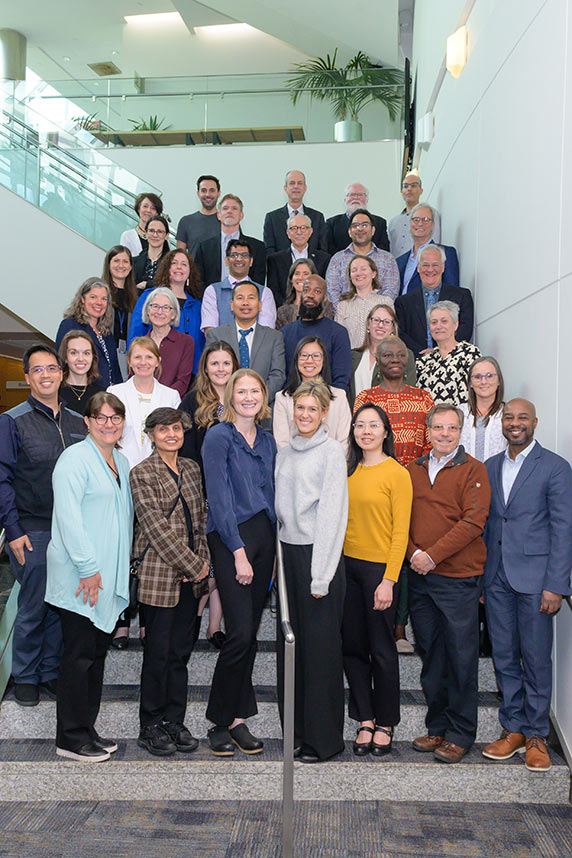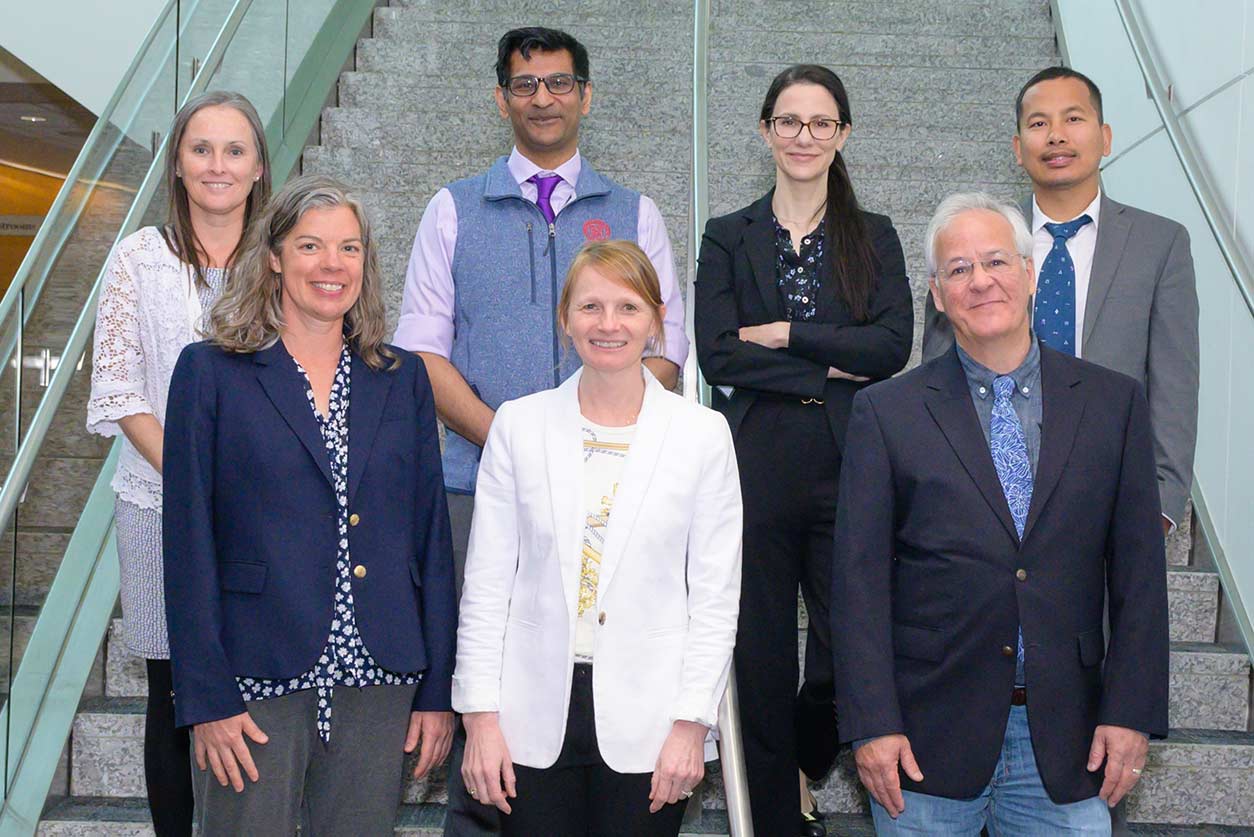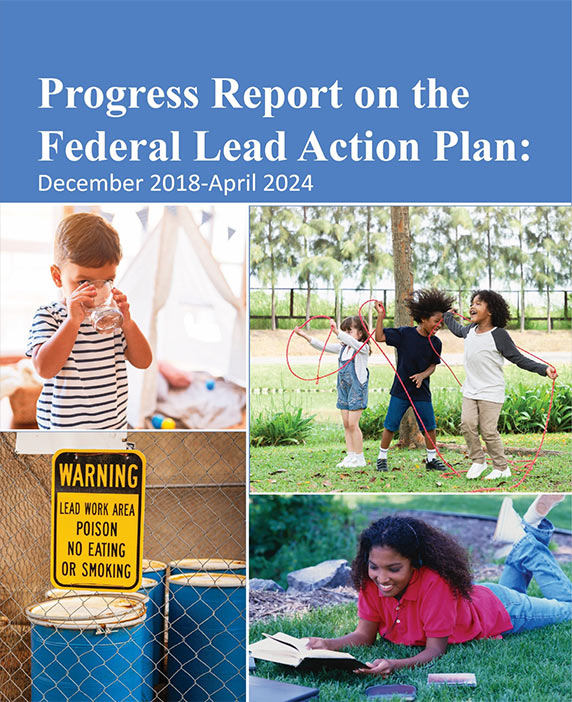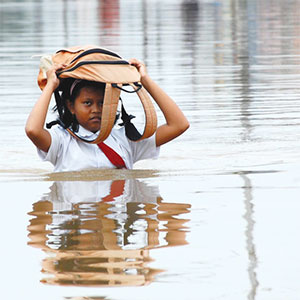NIEHS leaders spread word about NIH Climate Change and Health Initiative

The NIH Climate Change and Health Initiative continues to build momentum as those leading the effort give presentations at home and abroad, gather for in-person meetings, and share ideas to build a community of practice. Most recently, NIEHS Director Rick Woychik, Ph.D., who serves as the Chair of the Committee leading the NIH effort, gave a Dean’s lecture at Yale University in March and another lecture at Virginia Tech on May 9, where he talked about the direct and indirect effects of climate change, and how NIH is working to address these.
“Studying the effects of climate change is complicated and is much bigger than what just NIEHS can do on our own,” said Woychik. “We’re going to have start working in an interdisciplinary way unlike anything we’ve ever done before. You’re going to have geophysical scientists working collaboratively with biologists and physicians, and then coming up with a strategy.” (Listen to the entire lecture on the Virginia Tech Fralin Biomedical Research Institute’s YouTube channel.)
Gwen Collman, Ph.D., Strategic Advisor to the Initiative, was the keynote speaker at a Climate and Health Summit at the University of Louisville, Kentucky, April 15-17. She also participated in a community forum focusing on climate and health that week. In early May, Collman travelled to South Africa for a meeting to share information about the NIH and its interest in forming global research collaborations to tackle the impact that the changing climate has on health. Ashlinn Quinn, Ph.D., a lead program officer overseeing the NIEHS and NIH grant climate and health portfolio, created interest in the NIH efforts, by presenting at the Association of Public Health Laboratories annual conference in Milwaukee in early May.
NIH Scholars gather for in-person meeting day with NIH leaders
At the end of April, Woychik, Collman, and members of the NIH-wide Climate Change and Health Working Group met in person for a full day to learn from and collaborate with the current class of NIH Climate and Health Scholars. Each Scholar had an opportunity to share their workplan activities and expertise, which comes from outside the federal government, and to lead discussions with NIH staff about how to move the NIH Climate Change and Health Initiative forward, with a focus on climate and health data strategies, implementation science, systems science approaches, and training and capacity building.

“It was a day full of energy, knowledge sharing, and forward thinking,” said Collman. “Meeting in-person with the scholars, established scientists who have been thinking and working on climate related issues for their whole career, brings an abundance of new knowledge to NIH and helps us think about the best way to implement this important effort.”
Another item that will better help build momentum for the NIH efforts is the upcoming launch of a new website. The new site is expected to be available at https://climateandhealth.nih.gov in late June.
Presidential task force reports progress on Federal Lead Action Plan

The President’s Task Force on Environmental Health Risks and Safety Risks to Children has published its Progress Report on the Federal Lead Action Plan. The report provides a comprehensive update on efforts taken by the federal government and advancements made between December 2018 and April 2024 to reduce childhood lead exposures and associated health effects. For example, the report details initiatives to reduce exposures to lead in drinking water, soil, food, consumer products, and air pollution. It also describes efforts to improve screening for developmental delays in lead-exposed children and to increase awareness of lead hazards and actions that can be taken to protect against exposures. To read the report, visit: https://ptfcehs.niehs.nih.gov/sites/niehs-ptfceh/files/files/progress-report-flap_508.pdf.
(Robin Mackar is a writer and media relations coordinator in the NIEHS Office of Communications and Public Liaison. Erica Hinton is a contract writer for the NIEHS Office of Communications and Public Liaison.)









